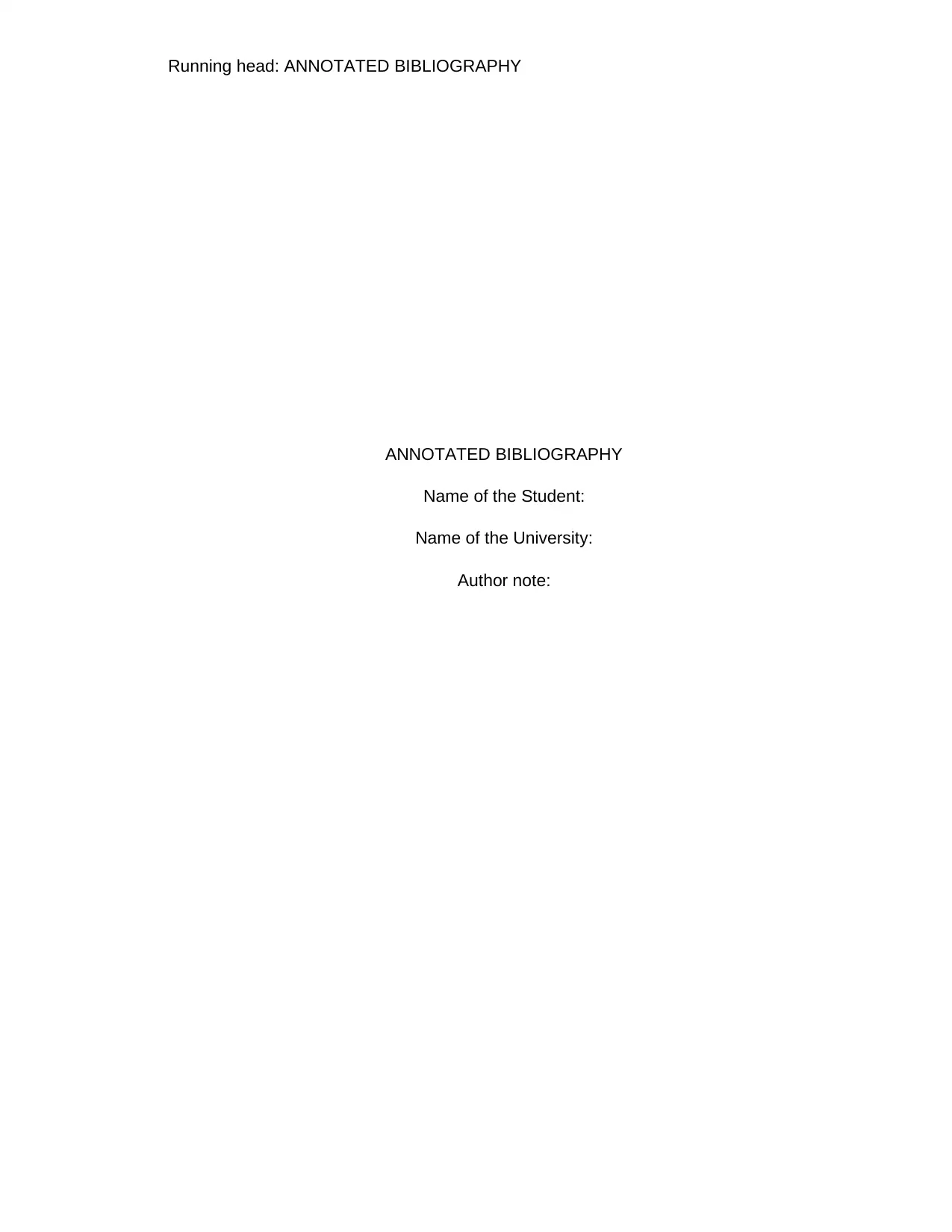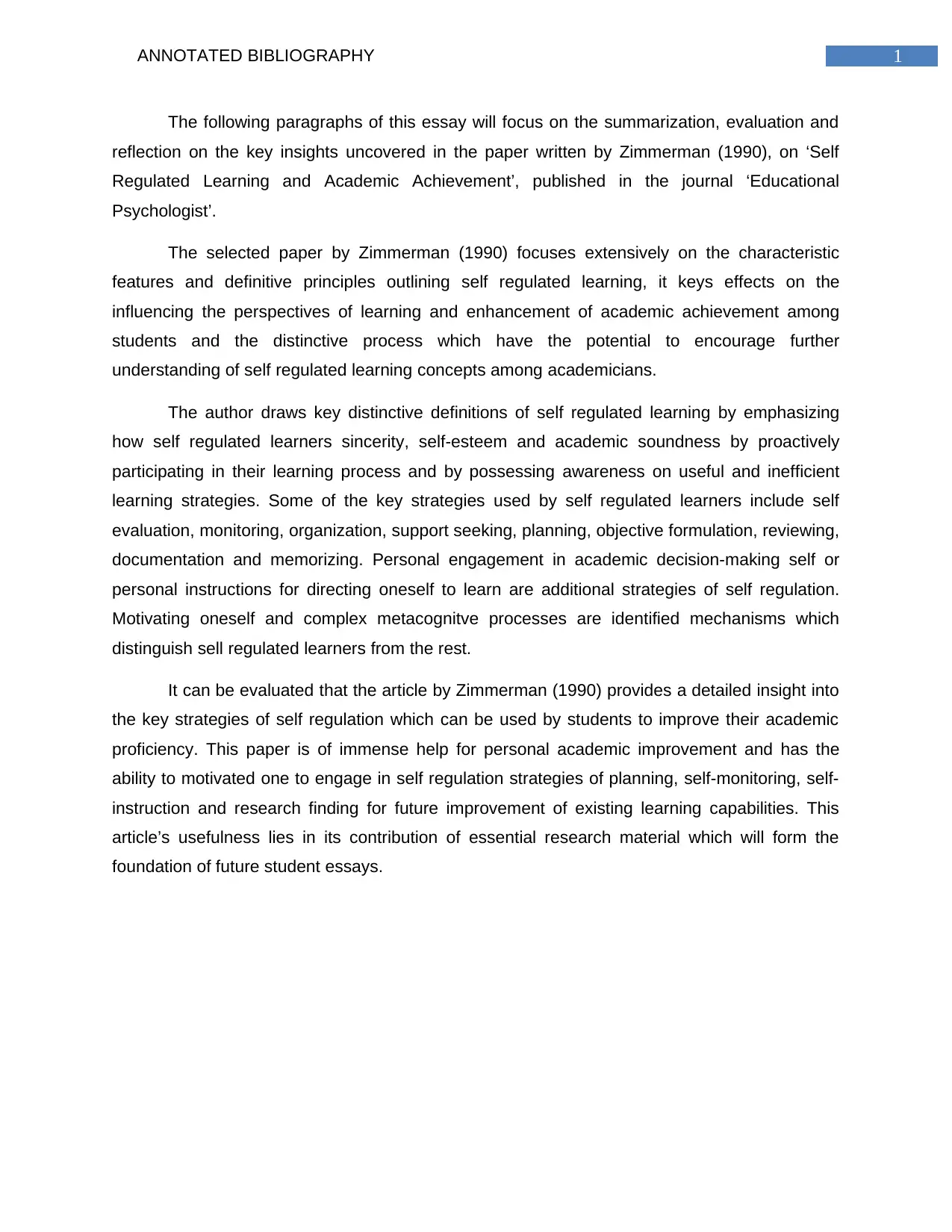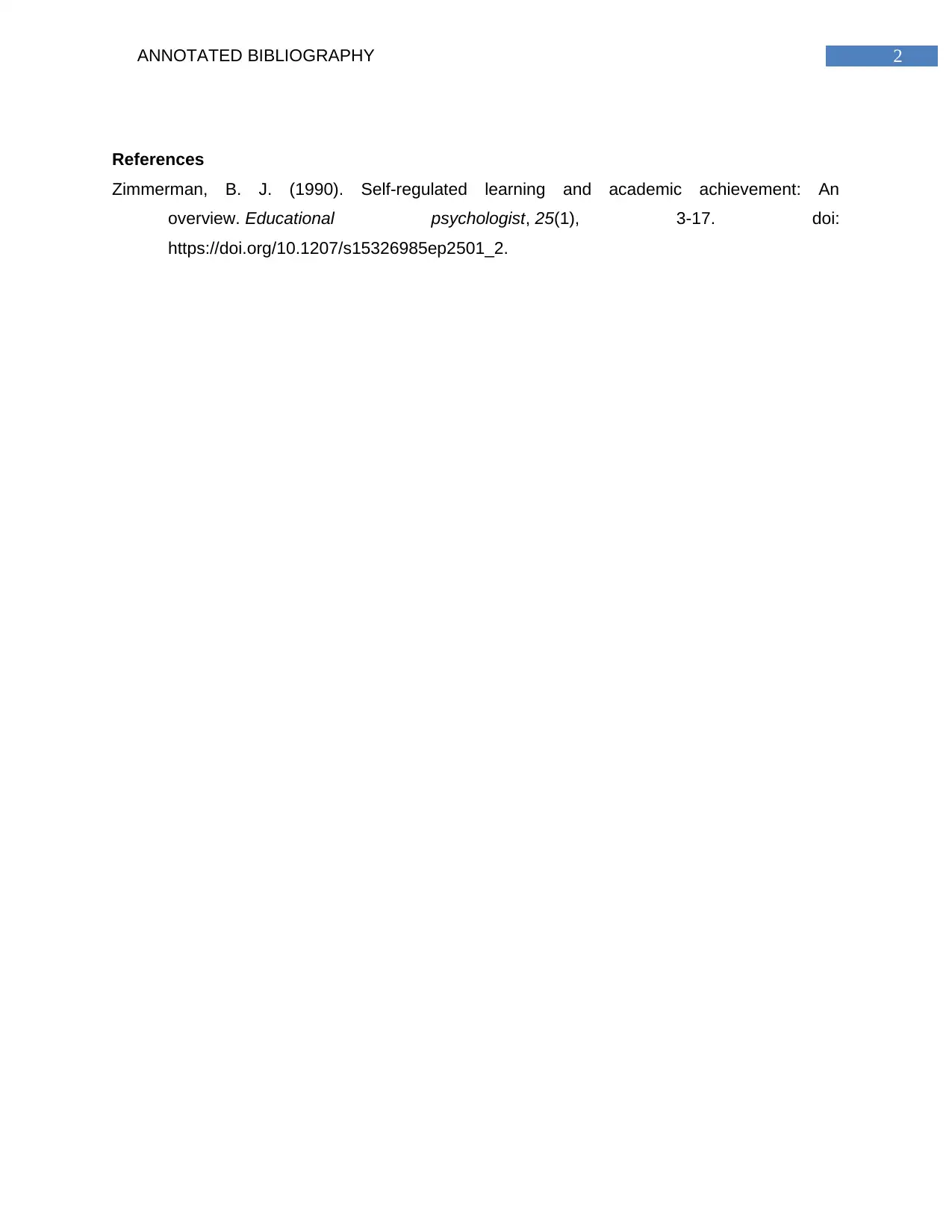Annotated Bibliography: Self-Regulated Learning & Academic Achievement
VerifiedAdded on 2023/04/08
|3
|322
|191
Annotated Bibliography
AI Summary
This annotated bibliography summarizes, evaluates, and reflects on key insights from Zimmerman's (1990) paper, 'Self-Regulated Learning and Academic Achievement,' published in Educational Psychologist. The paper focuses on defining self-regulated learning, its impact on academic achievement, and processes for understanding the concept. Zimmerman emphasizes self-regulated learners' proactive participation, awareness of learning strategies, and self-evaluation. The article provides detailed insights into self-regulation strategies, such as planning, self-monitoring, and self-instruction, that students can use to improve their academic proficiency and forms a foundation for future student essays. This assignment was submitted by a student and is available on Desklib, a platform offering AI-based study tools.
1 out of 3










![[object Object]](/_next/static/media/star-bottom.7253800d.svg)